Wilson Building Bulletin: To fight (Congress) or not to fight, that is the question
D.C.'s elected officials need to decide whether to defy Congress – or defer to it – over a tax bill.
Banneker Pool is the place to see and be seen in the summer, and he’s a big part of the reason why.

“This is the place to see and be seen,” I say to my friend Sam as we head up the ramp into the Banneker rec center on a hot day last July. In the background, we hear a loud voice over the speaker: “Hello everyone at Banneker Pool, Marcus here – we just wanted to announce that President Joe Biden has said that he is dropping out of the race for president.”
Cheers and gasps fill the crowd. People begin to swarm Marcus Truman, formally known as the pool operator, more informally known as Marcus the emcee of Banneker, with questions.
Banneker isn't usually known for announcing breaking news, but it’s not uncommon for Marcus to be at the center of the pool’s lively, social atmosphere. He plays a wide variety of musical genres over the loudspeakers – giving it a municipal-amenity-meets-nightclub vibe – and in between songs, you’ll hear him get on the microphone to shout out birthdays, tell young poolgoers to stop running, and celebrate anniversaries and personal-life wins.
“Club Banneker,” as Marcus likes to call it.
The pool, located just around the corner from Howard University, has been a crucial gathering place for D.C. since it was built in 1934. Named after Benjamin Banneker, who helped design Washington, D.C. as the country’s first Black presidential appointee, it was one of two public pools specifically for Black residents during segregation. Even after the city desegregated the pools in 1950, it continued to serve as a community hub for Black residents.
Today, it exists as a free-of-charge space in an increasingly expensive and gentrifying city, one where people from all walks of life share the sun (or shade). Marcus works day in and day out to ensure that Banneker pool remains a unique and welcoming place. I had to get to know him more and hear his thoughts.
People see you and hear your voice all the time, so we wanted to get to know you. I'd love to learn more about your life in D.C.
I'm 43 years old, and I’ve been in D.C. ever since I was two years old. I was born in Pennsylvania. My mom brought me here and we moved to Ward 8. All my family is here. We've been here all our lives.
Growing up, did you come to Banneker?
Yes, a lot. I really was a rec baby, like I wanted to go to every rec center. I didn't really want to stay in Ward 8 all the time. I wanted to travel all around the city to swim. I’ve been coming to the pool for well over 30 years now. It’s helped me stay out of trouble when I was growing up.
Since you’ve been coming for so long, have you seen Banneker Pool change over the years?
Yes, it has changed. When I was a kid, there was really no noise at all – mostly sunbathers, some lap swimmers, and a few kids. But now everyone is here. You have sunbathers, families, people dancing in the pool, lap swimmers, and even book readers inside the pool. We have everything here – I just love it. Growing up, it felt like a normal pool that was local to those who lived nearby. But now, people from all over come here to swim.
How long have you worked here?
I've been at Banneker over the last three years as a pool operator and recreation specialist, and I have been working for the Department of Parks and Recreation (DPR) for about 9 years.
Overseeing Banneker, one of the city’s biggest and busiest pools, must’ve been scary when you got your assignment. So many swimmers, so many people who go to the pool for different reasons.
When I first took on the responsibility, I was so scared. I see 1,000 people a day. I was like, I don't know how I'm gonna do it. I'm not gonna do it. But the minute that I walked in here, and I hooked up my speaker, everybody gave me so much credit that day. So it's just like, well, I gotta do this every day now. People love it.
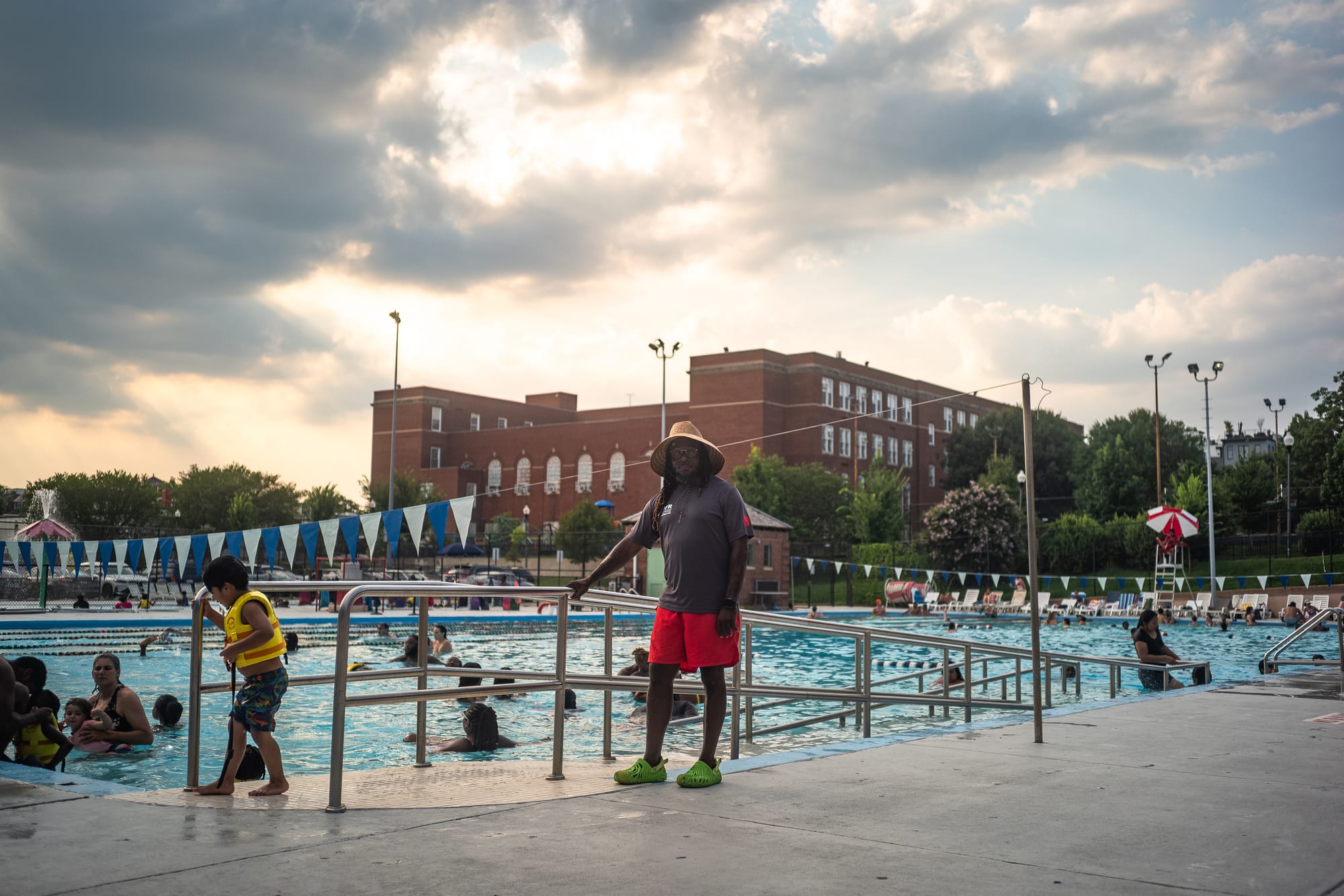
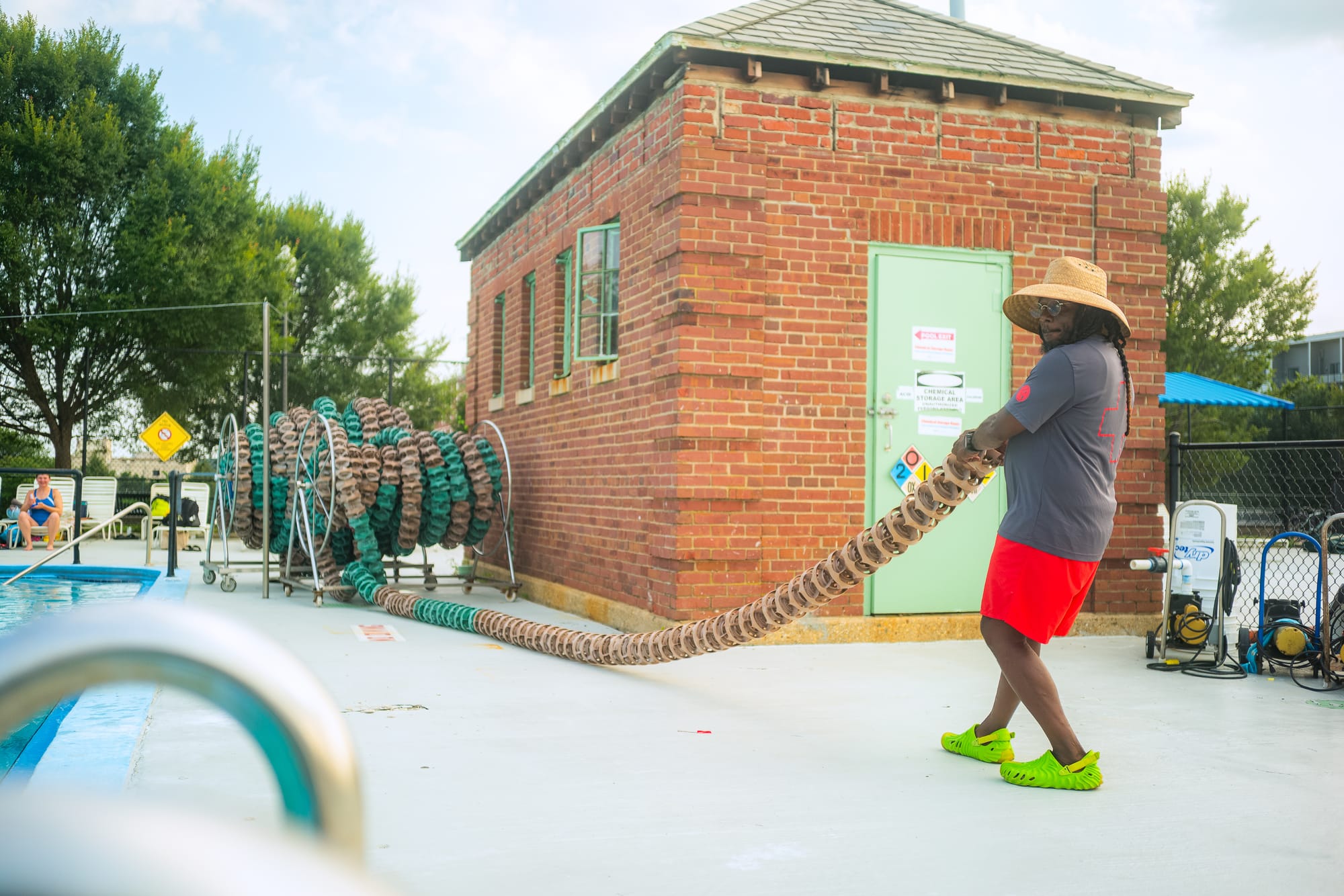
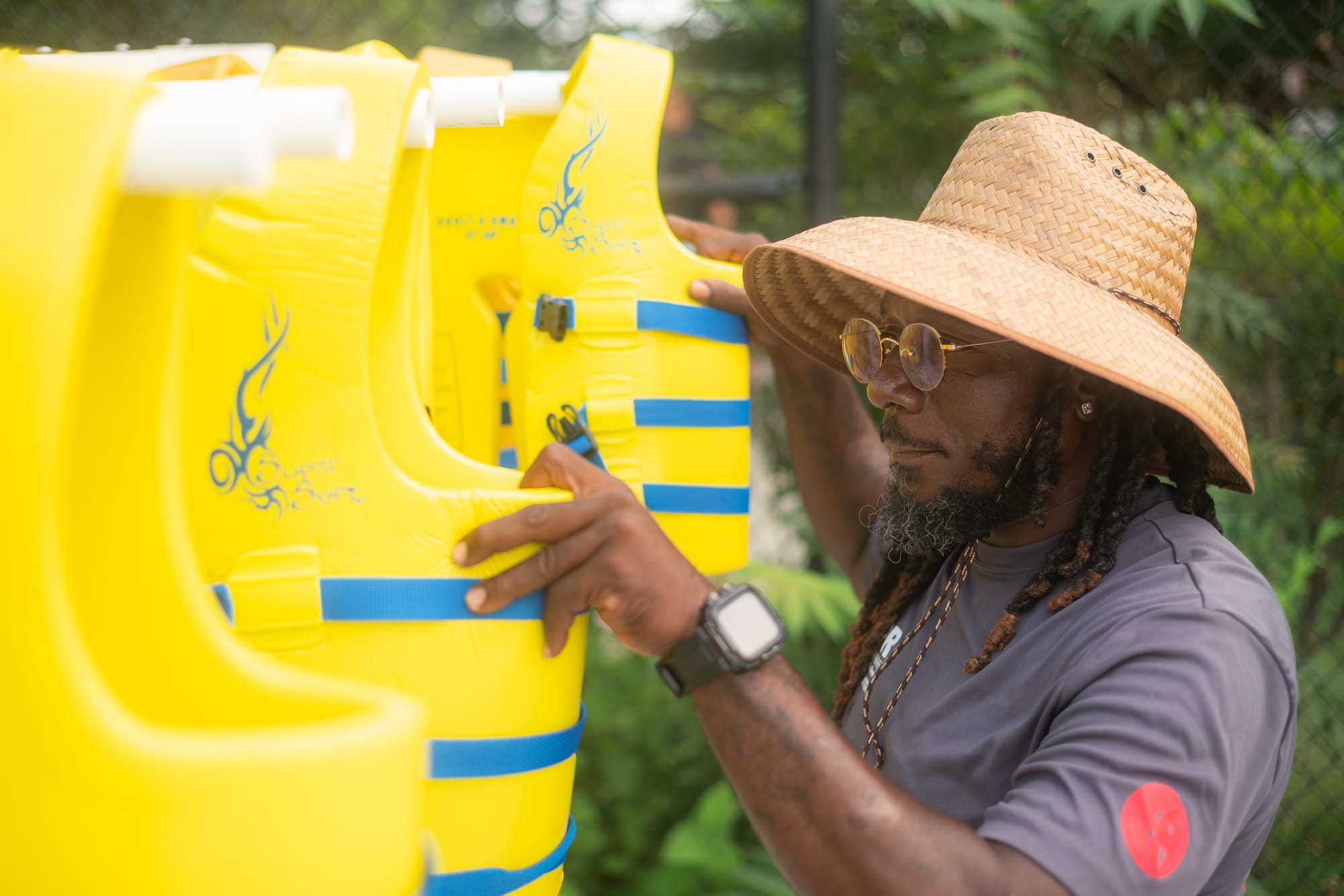
(Shedrick Pelt)
Was there music playing before you arrived?
Before I worked at Banneker, my coworker did play music – and it was a vibe then, too. So when they moved me here, he was just like, ‘I'm passing the torch, yeah, keep the legacy going. I know you're a music guy.’
I remember one day I came to Banneker, you were playing Bad Bunny. And then I heard go-go music like Rare Essence, and then immediately into hyper pop, like Charli XCX, and then I heard the Veggie Dance for kids. The music choices really represent the different types of people who come here. The city is very segregated, but Banneker has become a staple where all D.C. residents – regardless of their background, age, gender, sexuality, or income-level – can enjoy the sun, stay cool, and enjoy the music. What do you do to create this atmosphere?
I believe everyone can and should enjoy the pool. I don't treat anyone differently. I don't let no one come in and play with no one with a different race than yours, a different sexuality than yours, a different gender. I do not play if you come in here and tease someone.
For music, I take a lot of song requests from people. And I ask people, hey, who has a birthday? You have a song request? I always play it on my phone and save it. I'll go home and I'll listen to it, and begin to make playlists for the pool. Actually, last year I fell in love with Pink Pony Club by Chappell Roan and even got the whole pool to do the Hot To Go dance. A poolgoer actually took a TikTok of it and it went viral.
During the colder months when outdoor pools aren’t open, what are you doing?
I work at indoor pools, usually at the Takoma Aquatic Center. I go at 5:30 in the morning and get off at 2. So I do this all year round, and I don't stop. I teach water aerobics. I teach lifeguard training classes, swim classes, and other classes we have through DPR.
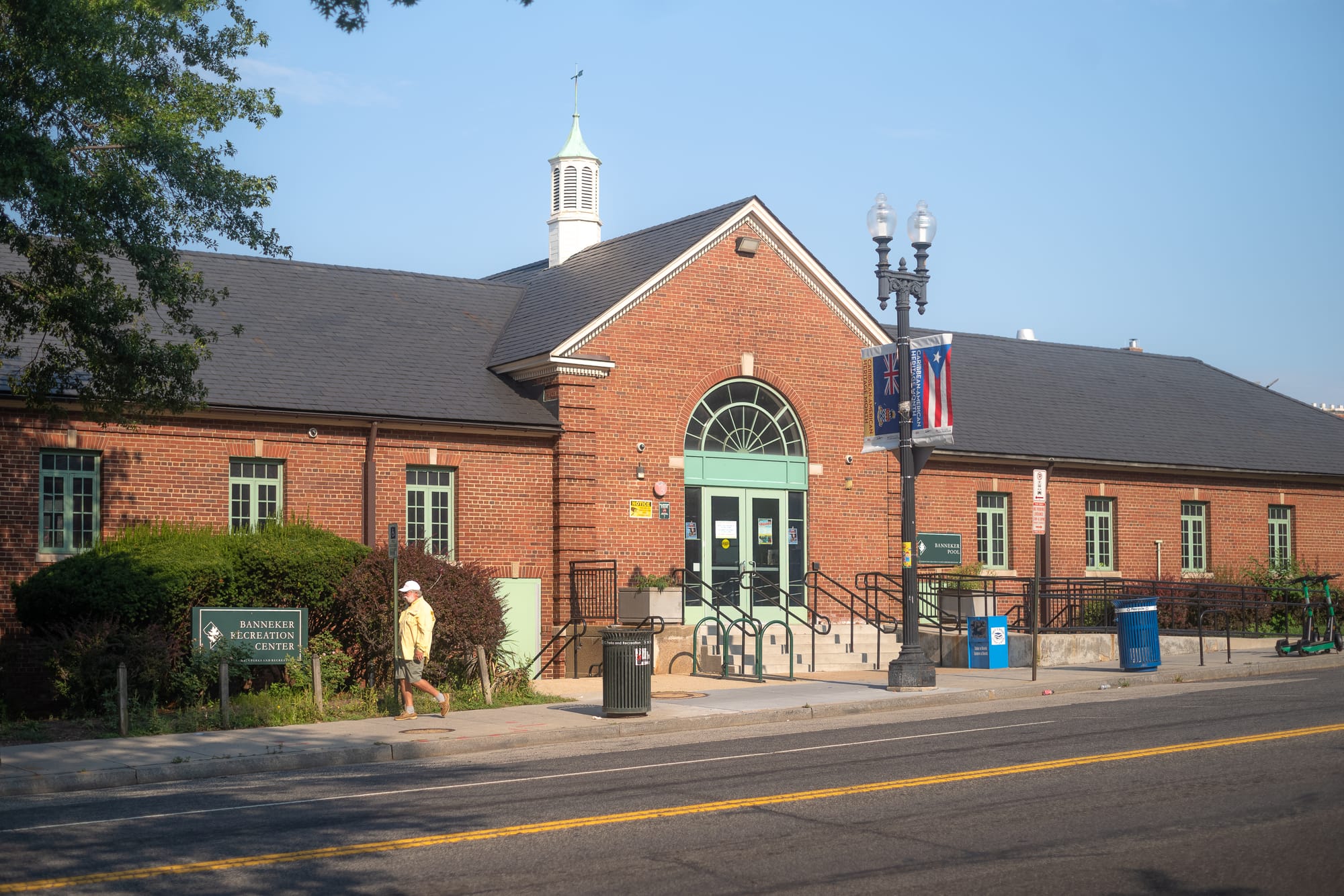
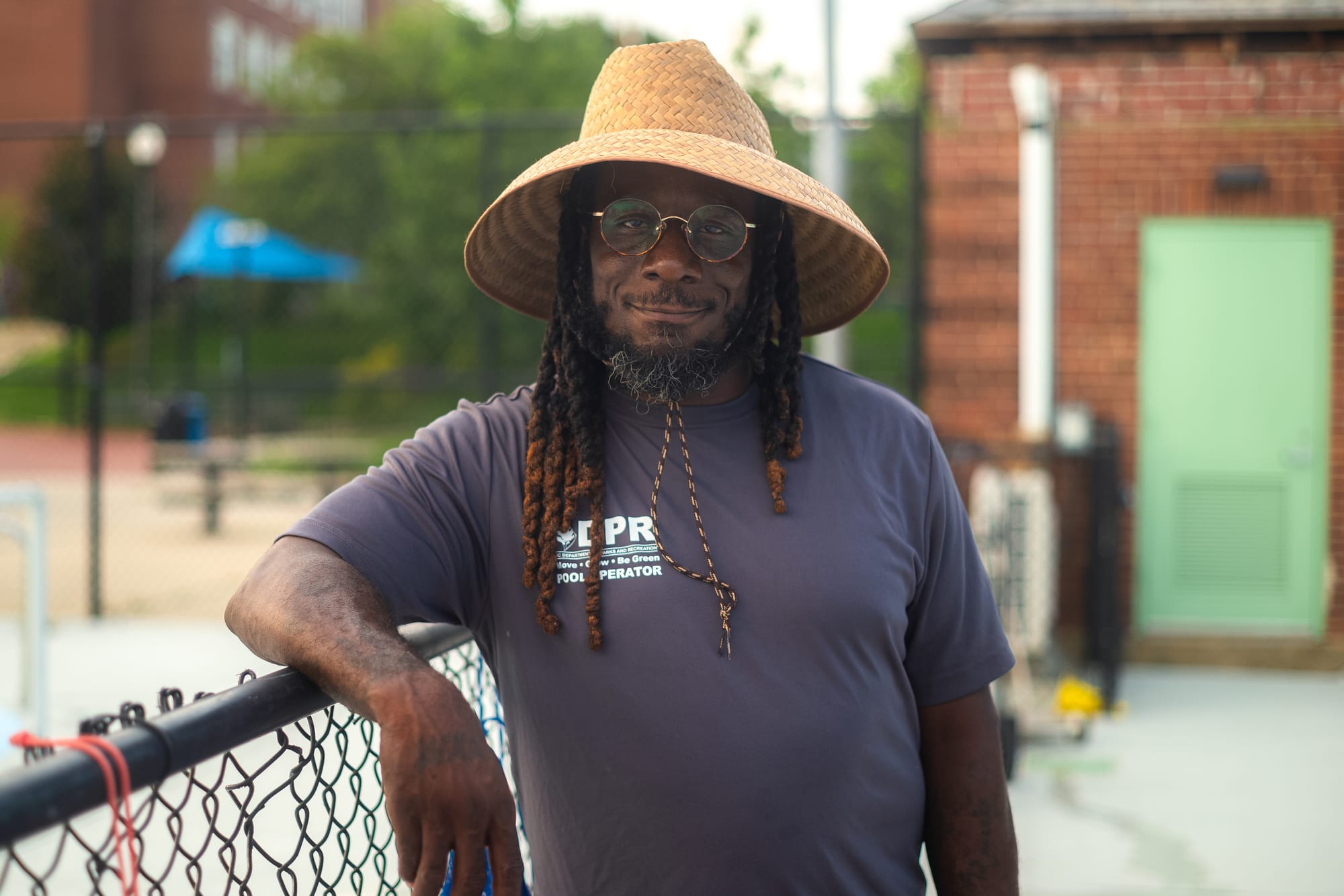
(Shedrick Pelt)
I can’t imagine it’s all fun all the time. What is the toughest part of the job?
It can be really tough some days, because when you, like, get the 100 degree days, the 105, right? You gotta have tough skin to be up in that chair or walking around the pool deck.
Definitely. I’ve also seen you have to kick people out of the facility, which I’m sure isn’t fun.
When I kick a person out, they know they messed up. They always ask – ‘how long are you kicking me out?’ People are going to try things that they know they’re not allowed to do just to see if they can get away with it. But my eyes are all over, I never miss it, and it really ensures everyone is safe.
Everyone wants to come back because it’s a special place. I grew up going to public pools my whole life, as did you. What makes Banneker Pool different?
It's huge – nearly Olympic sized. On the first day we opened this summer, we had nearly 1,300 people come. You also deal with people from different parts of the city, different people, different races, different walks of life. I’ve met so many types of people working here – even people from all around the world like Ethiopia, El Salvador, and France. And we take song requests, which makes us stand out!
So, what is the process of requesting songs?
First and foremost, I ask on the mic if anyone has a song request. I also do birthdays, shoutouts, and anniversaries, and my gift to them is a song of their choice. However, anyone can walk in the tent and ask for a song to be played as long as it’s PG-13 or has a clean version. But please come up to see and talk to me!
Glad to hear anyone can come up to you, say hi, and ask for a song! People want to know, will you be here next year?
I want to be here, but I know my job, my department, is going to move me somewhere else. I normally go and work at pools for three years, turn them around, get them running a little up to par, then they move me somewhere else. I like to be an asset to the department. But no matter what, I think I'm going to hang up here a lot next year, so you will still see me – and please say hi. I always say, if a guest can’t walk up to you and know your name, you’re not doing your job.
This interview has been lightly edited for length and clarity.
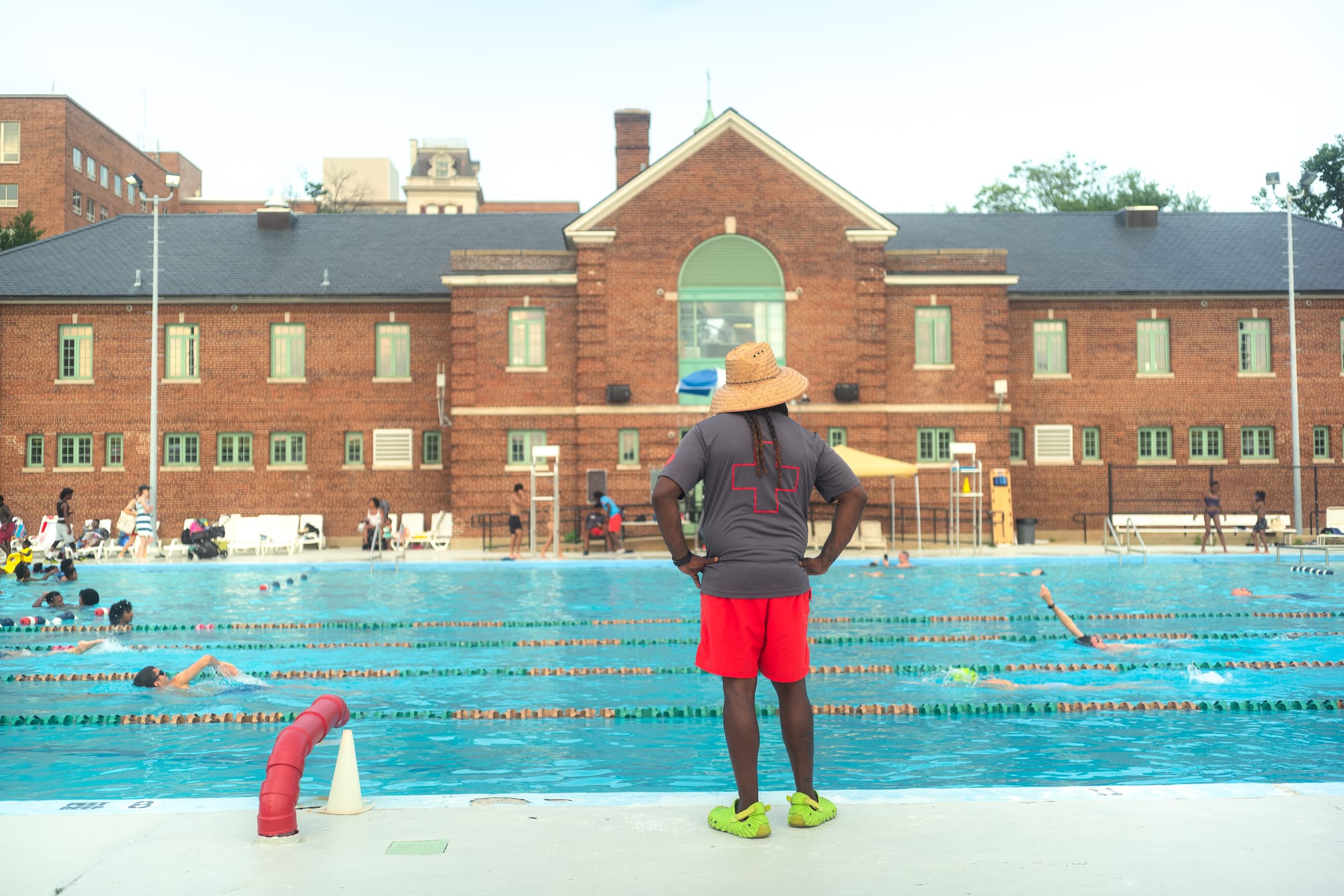
With your help, we pursue stories that hold leaders to account, demystify opaque city and civic processes, and celebrate the idiosyncrasies that make us proud to call D.C. home. Put simply, our mission is to make it easier — and more fun — to live in the District. Our members help keep local news free and independent for all: